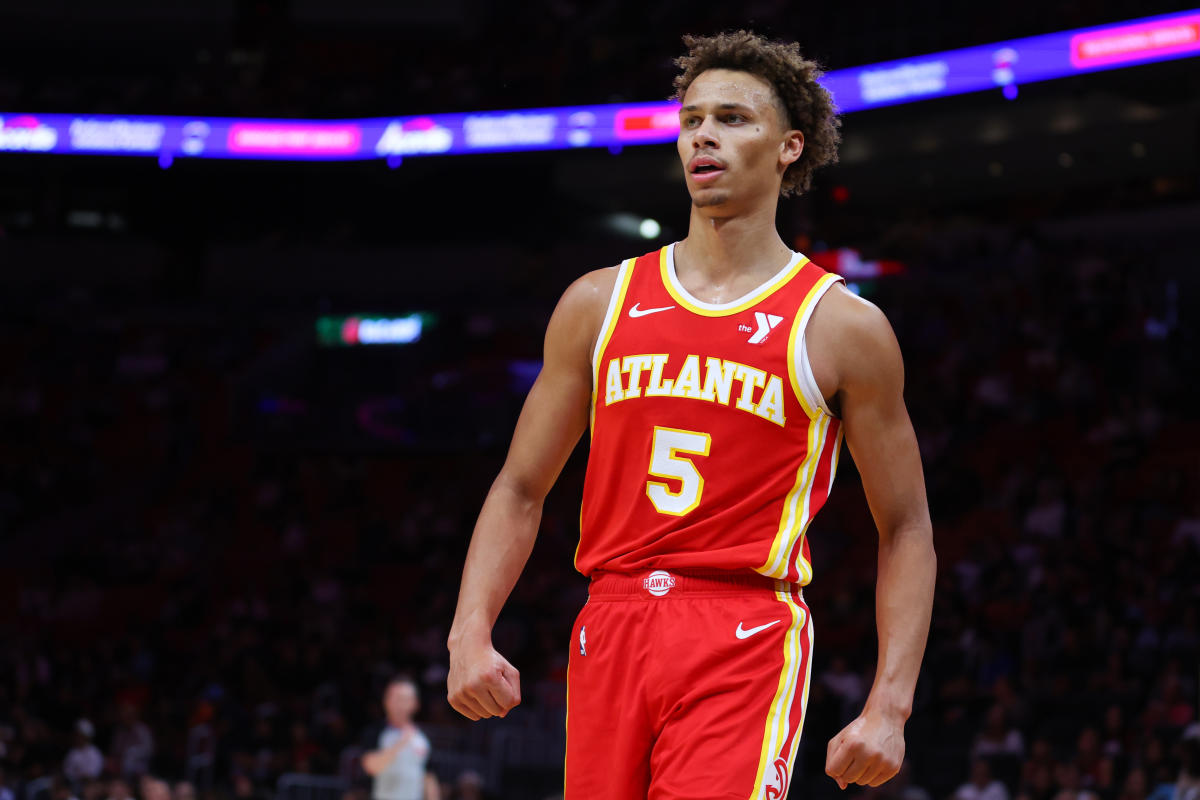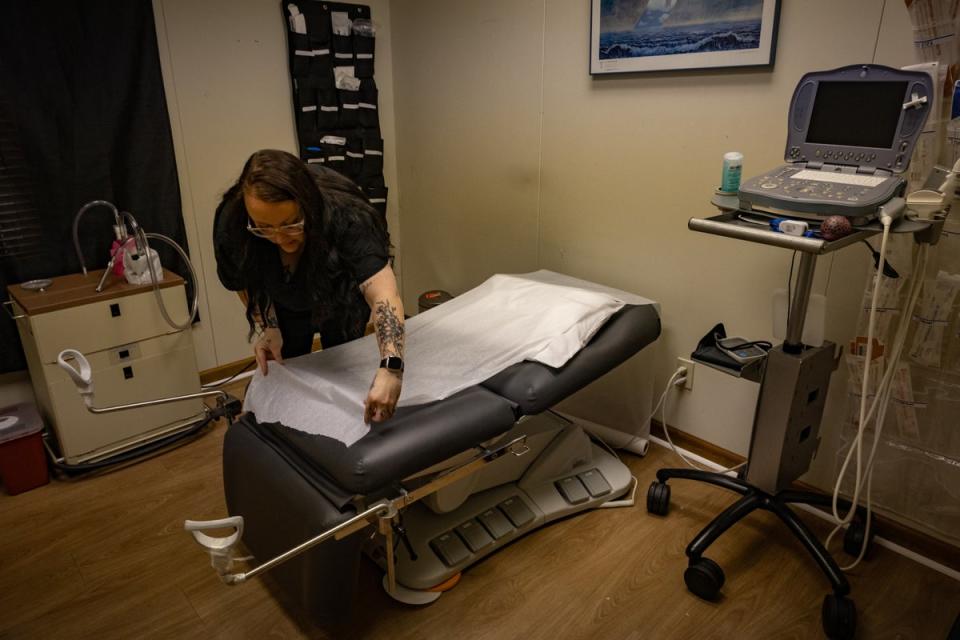When cars started disappearing from an affluent suburb on the outskirts of London, Laura* and her neighbours decided it was time to take action. Just 20 minutes from Marylebone by train, in the Buckinghamshire town of Gerrards Cross, Range-Rovers, Bentleys and Teslas were pinched one by one in a spate of thefts in the run-up to Christmas 2022. The police did little to help, Laura says. So the residents took matters into their own hands instead.
In December 2022, they came together to hire their own private security. Now, a surveillance car, paid for by the residents, loops a set of roads in the area at night – warning off would-be thieves. At first glance, the London Security Syndicate, or LSS, hatchback resembles a police vehicle – kitted out with an orange light, blue and yellow markings, and the word “security” emblazoned on its roof and side doors. Inside, it has a dashcam and GPS tracking.

“[Crime] was so prevalent, and we felt that there wasn’t the support from the police,” says Laura, whose garden was broken into two years ago. “[The trespassers] ran off, but lots of other people were having cars stolen in the area and there were also frightening burglaries where people had hammers.
“It was a trigger. We thought ‘This is very scary and it’s very serious, we need to do something about it because we’re not going to get any protection from the police’. So we took it upon ourselves to seek out other options [which were] private security firms.”
They are not alone. With car thefts in England and Wales surging – Home Office figures show more than 133,000 offences were recorded in the year leading up to March, a 78 per cent increase compared with the same period a decade ago – increasing numbers of people appear to be turning to hired guards in a bid to protect their vehicles.
The capital has been particularly badly affected. Throughout London, the number of car thefts has increased at a startling rate since 2021, according to the Metropolitan Police. Nearly 24,000 vehicles were stolen in 2023, figures released by the force show, up from 18,058 two years before.
During the day, the sprawling houses in Gerrards Cross sit on spacious roads lined with tall trees. Sunlight filters through the autumnal leaves, and dog walkers are out on their morning strolls. But by night, the roads become shadowy, and the large distance between each house leaves them isolated – and vulnerable to burglary.
Residents in the area say that in the run-up to the spate of car thefts, crime had reached “the highest level in years”. Gangs had been targeting specific houses for over a decade, they claim, reportedly holding some families hostage as they demanded access to safes and life savings.
Then cars began going missing. “They broke their way through the gates, and they had some sort of device, which was like a curtain pole they held near to the house”, explains one resident, Hannah*, speaking about a Bentley which was stolen in the area. “And somehow they used the coding of the key to break into the car and take it.”
“It’s mainly Range Rovers which have been on the drive and the thieves have managed to get a signal off the keys,” says another resident, Mary. “My next-door neighbour said to me that she’s got two friends who have had their Range Rovers stolen, just on our road.”
As concerns rose, local councillors held a public meeting with members of the community and the Thames Valley Police, residents say. Officers were given a clear idea of how people felt. “The police were not absent, and they were following things up, but in a way that didn’t satisfy people,” says Hannah. “I think there was a lot of fear, and there was no additional police presence proposed.”
Finally, a group of residents sent a letter out proposing the private security scheme.
Initially the “patrol loop” was to take in seven roads with the proviso that other roads could be added if the residents were willing to pay the fee. A list of prices was also included: the more people who opted-in to the scheme, the cheaper it became. If 50 signed up to hire one security guard and an accompanying vehicle, for 12 hours a day, every day of the week, it would cost each of them £145.60 a month. For round-the-clock protection, the fee was £291.20 per person.

Residents, dozens of whom signed up, settled on the 12-hour service. Those who agreed to participate were added to a separate WhatsApp group chat, and currently pay roughly £100 a month.
Each evening the LSS car patrols their neighbourhood, checking for suspicious activity. “The security guard comes at about eight o’clock in the evening, gets into the vehicle… and cruises the streets through the night,” explains Hannah.
LSS says it “works alongside local police” to deliver “expertly designed patrols” which are “proven to significantly reduce residential crime within their respective neighbourhoods”.
In addition, the company’s website says it uses police data on crime trends and suspicious behaviour in the streets where it operates. It also works with Safer Neighbourhood and Neighbourhood Watch teams.
Amid the troubling rise in car crime, the firm appears to be growing in popularity. It now operates in at least 20 suburbs across North London and the home counties including Brockley Hill, Moor Park, Northwood, Beaconsfield and Epping, in Essex. In Radlett, Hertfordshire, “London Security Syndicate’s high-visibility patrol vehicles have become a familiar sight,” the website says.

Once the preserve of the wealthiest in society, private security companies are now operating in ordinary, middle-class communities. My Local Bobby, another residential security company, patrols in places such as Chigwell, Woodford and Trent Park, as well as the well-off enclaves of Notting Hill and Chelsea. Security Risk Specialists, or SRS, covers neighbourhoods in Greenwich, Brent, Hounslow and Haringey – among other boroughs.
Back in Gerrards Cross, not everybody is on board with the scheme – fuelling tensions between those who pay to “opt in” and those who don’t, but benefit from the additional security measures nonetheless.
“A lot of people were saying, ‘we don’t want to pay for extra security’. And then there were other people who did want to pay for it, and they were saying, ‘how is this going to work?’” says Mary.
“It’s caused a split between those paying and those who aren’t,” agrees Laura, who opts-in to the scheme. “Some people are very reluctant to pay, but they like the benefit of having a car driving down their road, which other people are paying for. It makes me feel annoyed.”
Others feel the service is simply unnecessary: “We personally weren’t wanting to join and pay out £100 a month to cover that risk,” says Hannah. “It’s a lot of money. We don’t have an expensive car and we don’t have the expensive things that some of the others really do.”
Jane*, another resident, adds: “I think it’s a bit unnecessary. We’ve never had a problem, we’ve been here for 25 years, and its a very safe neighbourhood.”
John*, one of those who decided not to contribute, claims the security doesn’t actually do anything that the police wouldn’t. “They just drive around. I asked the question, ‘If you saw someone attempting a robbery, what would you do?’ And they said, ‘Call the police’.
“We can do that anyway, they don’t have the powers to stop anyone if they see them, they’re just patrolling the area so I decided not to opt in because I didn’t think there was any point in it.”

To differentiate between “paying members” and “non paying members”, a system of yellow placards was arranged in Gerrards Cross. Residents who opted into the scheme would be allowed to display these outside their houses as a deterrent, and it was also agreed that the security would only cover their houses. If anything happened to a paying resident’s property, the security guard would be there in an instant. Residents who opted out would not receive any support whatsoever.
Despite this, many paying residents in Gerrards Cross still feel that others in the community are benefitting from the deterrent provided by the security car. And there are stories of the security vehicle intercepting crimes at non-paying houses: their Amazon packages being rescued from the clutches of criminals, and car thefts being cut short.
Irrespective of whether they opt in or not, many residents agree that they’ve seen crime in the local area fall and report feeling safer at night since the scheme began.

“It’s peace of mind, there is a definite improvement,” says Laura. “It doesn’t mean that there won’t ever be crime, because things still happen, but I definitely feel safer. We know that if something happens to our house, they’ll be there.” For many here and elsewhere, it seems, peace of mind is priceless.
A spokesman for Thames Valley Police, said: “Crime that affects our communities is important to us, and our officers and staff work extremely hard in order to investigate thoroughly and provide reassurance to the public.
“We are committed to working closely with our communities to combat crime and thankfully crime in the Gerrards Cross area remains low when compared nationally.
“We are aware that some members of the community may wish to raise issues to us, and we would encourage them to get in touch, we would also ask them to continue to report any crimes to us so that we can build and gather intelligence in order to bring offenders to justice and tackle the crime affecting them.”
*Names have been changed
EMEA Tribune is not involved in this news article, it is taken from our partners and or from the News Agencies. Copyright and Credit go to the News Agencies, email news@emeatribune.com Follow our WhatsApp verified Channel





